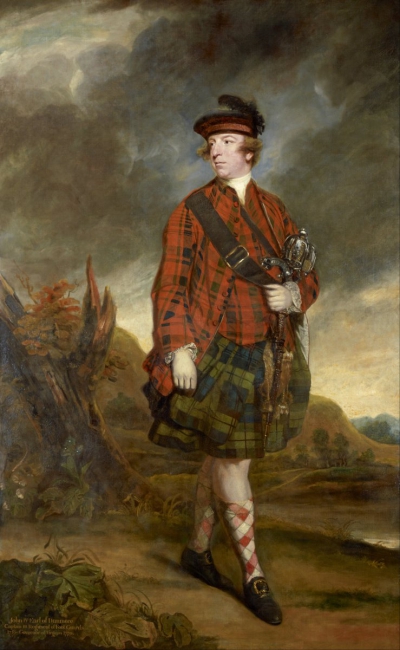Dunmore's Proclamation is a historical document signed on November 7, 1775, by John Murray, 4th Earl of Dunmore, royal governor of the British Colony of Virginia. The proclamation declared martial law and promised freedom for slaves of American revolutionaries who left their owners and joined the royal forces, becoming Black Loyalists. Most relevant historians agree that the proclamation was chiefly designed for practical and militaristic reasons rather than moral reasons, such as humanitarianism.Formally proclaimed on November 15, its publication prompted between 800 and 2000 slaves (from both patriot and loyalist owners) to run away and enlist with Dunmore.
It also raised a furor among Virginia's slave-owning elites (again of both political persuasions), to whom the possibility of a slave rebellion was a major fear. The proclamation ultimately failed in meeting Dunmore's objectives; he was forced out of the colony in 1776, taking about 300 former slaves with him.
The 1779 Philipsburg Proclamation applied to all the colonies. During the course of the war, between 80,000 and 100,000 slaves escaped from the plantations.
John Murray, 4th Earl of Dunmore (1730 – 25 February 1809), known as Lord Dunmore, was a British nobleman and colonial governor in the American colonies and The Bahamas. He was the last colonial governor of Virginia.Lord Dunmore was named governor of the Province of New York in 1770. He succeeded to the same position in the Colony of Virginia the following year, after the death of Norborne Berkeley, 4th Baron Botetourt. As Virginia's governor, Dunmore directed a series of campaigns against the trans-Appalachian Indians, known as Lord Dunmore's War. He is noted for issuing a 1775 document (Dunmore's Proclamation) offering freedom to any slave who fought for the Crown against the Patriots in Virginia. Dunmore fled to New York after the Burning of Norfolk in 1776 and later returned to Britain. He was Governor of the Bahama Islands from 1787 to 1796.

1775Nov, 7
John Murray, the Royal Governor of the Colony of Virginia, starts the first mass emancipation of slaves in North America by issuing Lord Dunmore's Offer of Emancipation, which offers freedom to slaves who abandoned their colonial masters to fight with Murray and the British.
Choose Another Date
Events on 1775
- 8Mar
Abolitionism in the United States
An anonymous writer, thought by some to be Thomas Paine, publishes "African Slavery in America", the first article in the American colonies calling for the emancipation of slaves and the abolition of slavery. - 18Apr
Battles of Lexington and Concord
American Revolution: The British advancement by sea begins; Paul Revere and other riders warn the countryside of the troop movements. - 19Apr
Battles of Lexington and Concord
American Revolutionary War: The war begins with an American victory in Concord during the battles of Lexington and Concord. - 17Jun
Battle of Bunker Hill
American Revolutionary War: Colonists inflict heavy casualties on British forces while losing the Battle of Bunker Hill. - 3Jul
George Washington
American Revolutionary War: George Washington takes command of the Continental Army at Cambridge, Massachusetts.

 English
English  español
español  français
français  português
português  русский
русский  العربية
العربية  简体中文
简体中文 